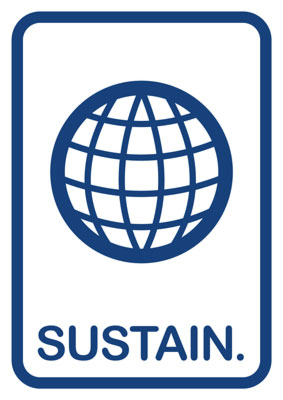Presentation of TWG
The concept of sustainable development (SD) acquired worldwide attention following the publication of the Brundtland Report by the World Commission for Environment and Development in 1987. It defined sustainable development as “development that meets the needs of the present without compromising the ability of future generations to meet their own needs”. Since then SD has become broadly accepted as a guiding vision for policy makers, program managers, civil society and the business sector. In 2015, the UN General Assembly endorsed the Sustainable Development Goals as an important part of the Agenda 2030. The Agenda 2030 explicitly mentions monitoring and evaluation as a key success factor for reaching the SDGs and call for a “robust, voluntary, effective, participatory, transparent and integrated follow-up and review framework”. However, these efforts have to deal with a high level of complexity, potential trade-offs, interconnectedness and systemic effects, as well as different perspectives and interests of the different societal actors.
For evaluation, this is a significant change and switch of perspective. While evaluation tends to focus on highly specialized projects or programs in a broad variety of different sectors and sector policies, the evaluation of SDGs will primarily be a national task and a new challenge both for evaluators and national authorities. The main issue is the integrative approach of sustainable development, including different systems (ecology, economy and the social system), different levels of activities (global, regional, national and local level) and different time-spans (short-term, medium-term and long-term). As a result, the adoption of SD principles has profound implications for evaluation: the focus on future generations and long-term transitions requires evaluation methods able to assess such kind of processes; the holistic perspective on environmental, economic and societal impacts requires tracking of long lasting effects within and across systems; and inclusive thinking like mentioned in the Agenda 2030 key claim “that no one will be left behind” longs for sound aggregation and valuation methods which can accommodate involvement, empowerment and learning of a wide range of stakeholders.
Objectives of TWG
The EES Thematic Working Group “Evaluating Sustainable Development” is designed for bringing together commissioners, evaluators, M+E officers, and researchers from different fields to exchange on approaches, concepts, ideas, methodologies, and theories for SD Evaluations. The key task is to help developing an adequate European way of doing evaluations that are able to tackle the various challenges briefly described here.
Specific Contact Person in the EES Board
Daniele Lamarque, daniele.lamarque@orange.fr, Weronika Felcis, weronika.felcis@gmail.com
List of TWG members (EES members in good standing)
To be added soon…
Current Work Plan
To be added soon…
There will be a virtual roundtable session of TWG 2 on “Evaluating the SDGs – What will be the impact of Covid-19?” at the gLOCAL week in June. It will be included in the CEval-Evaluation Day at June 3rd 2pm. For further Information see www.glocalevalweek.org.
Resources to download
- https://sustainabledevelopment.un.org/
- https://evalsdgs.org/
- https://wupperinst.org/uploads/tx_wupperinst/SustainabilityA-Test_brochure.pdf
- https://ec.europa.eu/environment/europeangreencapital/wp-content/uploads/2018/05/Strasbourg_Sustainability_Project_Evaluation_Tool.pdf
- https://www.iied.org/effective-evaluation-for-sustainable-development-goals
Additional resources for TWG members only
To be added soon…


